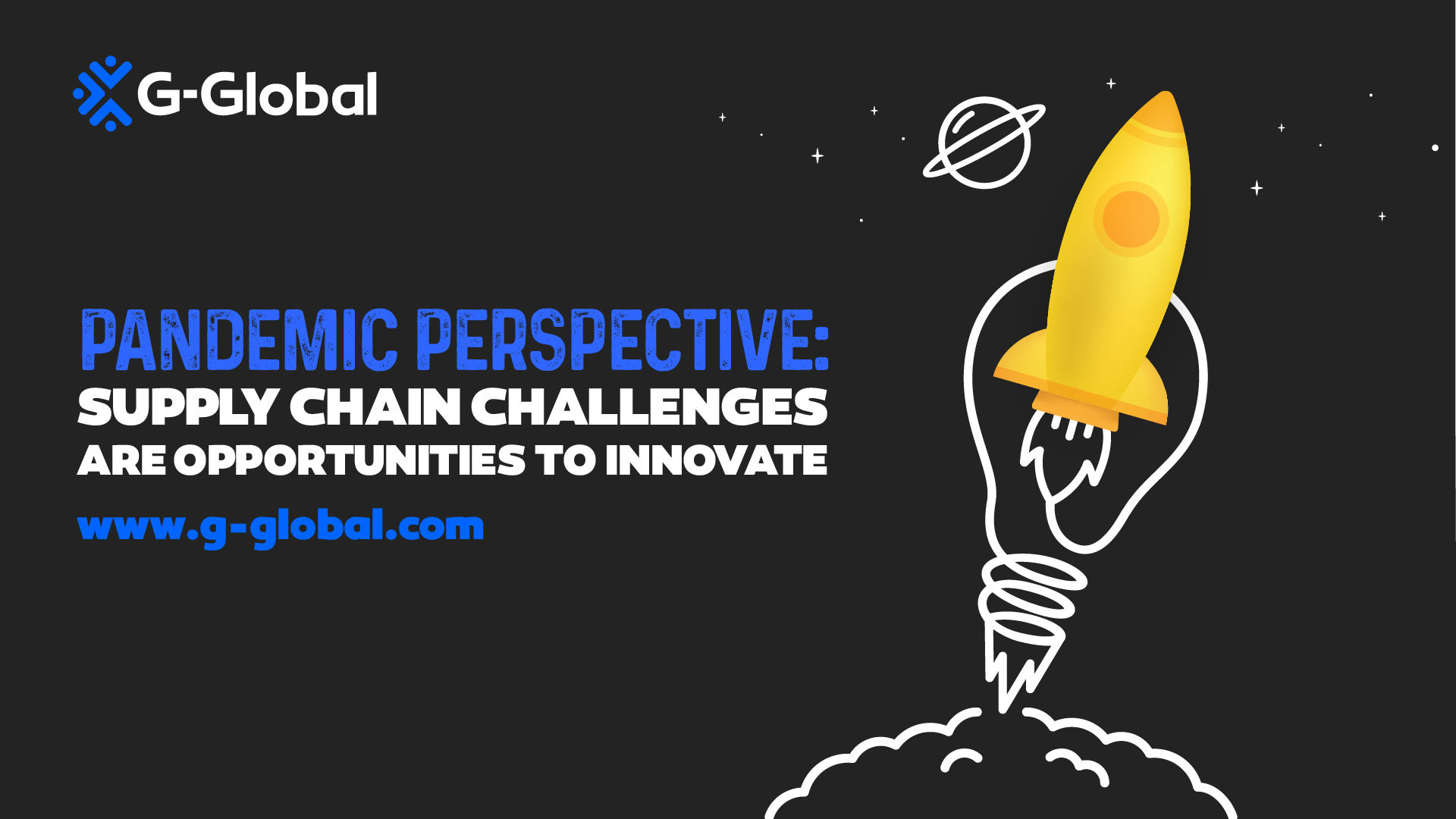The Covid-19 pandemic has emphasized supply chain vulnerabilities at a global, regional, and local scale therefore the need to innovate is not optional, but a vital approach to maximize the bottom line or for some, survive in a highly-competitive market.
CEO of G-Global, Fidel Gutiérrez Cetto, is interviewed by Carlos Higuera to reveal the evolution of the logistics perspective of facing the global pandemic in the American-Mexican border region. He shares with us the golden opportunities that arise from the new normality and the logistical challenges that accompany it. Enjoy the interview here. Today we will share how the COVID-19 set the stage for innovation in Baja California through Fidel Gutiérrez´s analysis and his experience leading G-Global.
G-Global being a customs agent and logistics service provider, is immersed in the logistics issues that escalated as lockdowns and COVID spikes appeared without precedent and the aftermath of global markets shaping transborder dynamics. Everyone is now playing with a new set of rules as changes are being pushed aggressively month after month.
As workforce availability fell in the immense industrial sector the search for new alternatives began. Yet, the economic impact of the privileged location of Baja California and the interdependence of the American market has driven a reactivation of economic activities compared to the rest of Mexico. The segregation of Baja California from the rest of the strip border can be recognized from its extensive network and regionalization of supply chains. Although economic ties are stronger in this state than in any other, this is also a golden opportunity for the rest of the country and dictates growth. Another contributing factor is the trade relationship between China and USA, considering that both are the largest economies in the world and Mexico is becoming a preferential manufacturer for global markets. Since 2018, growing disputes have been reflected through the issue of tariffs. Taking to account that China manufactures 28.7% of all the products in the world market, we can easily confirm the strong dependent relationship countries have with China, without adding the fear and risk of potential weaponized trade happening.
China continues to be an attractive ally as they have achieved tremendous economies of scale, costs, and efficiency but the pandemic has already made many industries see that they cannot have all their eggs in that basket, creating an opportunity for the Mexican economic development to seize as tariffs increase and are imposed. As economists have described, a new phase of acceleration for deglobalization has been initiated. Globalization was based on who and where could supply the most efficient operations with the lowest costs but the current disruptions have pushed companies to reassess and recognize that location should be prioritized. If all raw materials and operations proceed from China, the continuity of any supply chain is at risk. Regaining control and revaluating supply chain risks puts innovation in motion to search for new alternatives. Many companies have turned to look at Mexico as a strategic and competitive-advantage location to settle operations close to home, and therefore the diversification of supply chains starts to morph decision-making. In the last 40 years, Tijuana has proven to be a provider of a qualified workforce in its privileged geographic location. The interest in foreign investment is not only for American or European enterprises but also for Chinese investors as previous and new tariffs have escalated from 30% to 50%. Mexican manufacturing allows them to continue current production and scale into neighboring American consumers´ hands.
Mexico has the potential to become the first option to regionalize supply chains for international trade and the global scenario has positioned Baja California in a favorable direction for explosive growth.
In summary, the high labor costs of the American workforce, the tariff war between USA-China, and the risk of supply chain continuity puts Mexico on the map for investors looking for resilient and profitable opportunities for growth.
From Gutiérrez’s perspective, the pandemic came to generate many changes, both temporary and permanent. Pandemic innovation is also the acceleration of current logistics trends, the pandemic demanded digitizing communication and processes to guarantee efficiency. Let alone in Mexican customs, the implementation of the digitalization of documentation through the PITA project presents challenges in adaptation and bugs along the way but sets an example to be a step ahead of the consequences of global change will demand, such as the pandemic. As businesses innovate into a digital transformation, such as working remotely and decentralizing into cloud-based processes and flow. New scenarios forced everyone to invest and build technological infrastructure to drive digital transformation in real-time operational data, customer service communication, and more. AI has become a pillar in achieving newfound efficiency and reliability with unprecedented speed.
E-commerce was deeply leveraged into consumers´ behavior, considering that the COVID-19 restrictions pushed interested consumers to purchase for the first time online, opening a new market for many businesses. G-Global has helped businesses take advantage of Section 321 filing, to clear US Customs and providing with 100% duty savings. Goods are imported in one day with a value of less than $800, this means we can ship individual orders for our customers from Mexico to the United States duty-free. These savings allow e-commerce companies to overcome losses stemming from COVID-19.
Baja California continues to provide and innovate its infrastructure to welcome more commerce exchange to the border. One of the projects underway is Otay II, the fourth port of entry between Tijuana and San Diego. It will also be a toll border crossing with 10 exchangeable lanes, where 5 will be used for cargo transport and 5 for lighter vehicles.
How has G-Global helped leverage explosive growth while facing global challenges with innovation? G-Global leverages the latest technology to manage the entire logistics chain. This ability to track and manage operations from start to finish allows G-Global and our clients to act responsively, adapt quickly to changes, and enable faster, more cost-effective operations. Cutting-edge app technology has provided a landscape where consolidated logistics are now ultra-streamlined and ultra-efficient. G-Global provides a holistic and transparent client experience, all while processing millions of live transactions in mere seconds. We understand that the security of your operations is of the utmost importance. We operate 100% from the cloud with security protocols in place to protect your data and your operations. Our G-Global (G-OS) suite of apps and customer service is designed to let our clients easily and quickly track their operations, all in one simple-to-use platform. Talk to experts and take a tour of operational excellence and efficiency. Let’s talk logistics!



